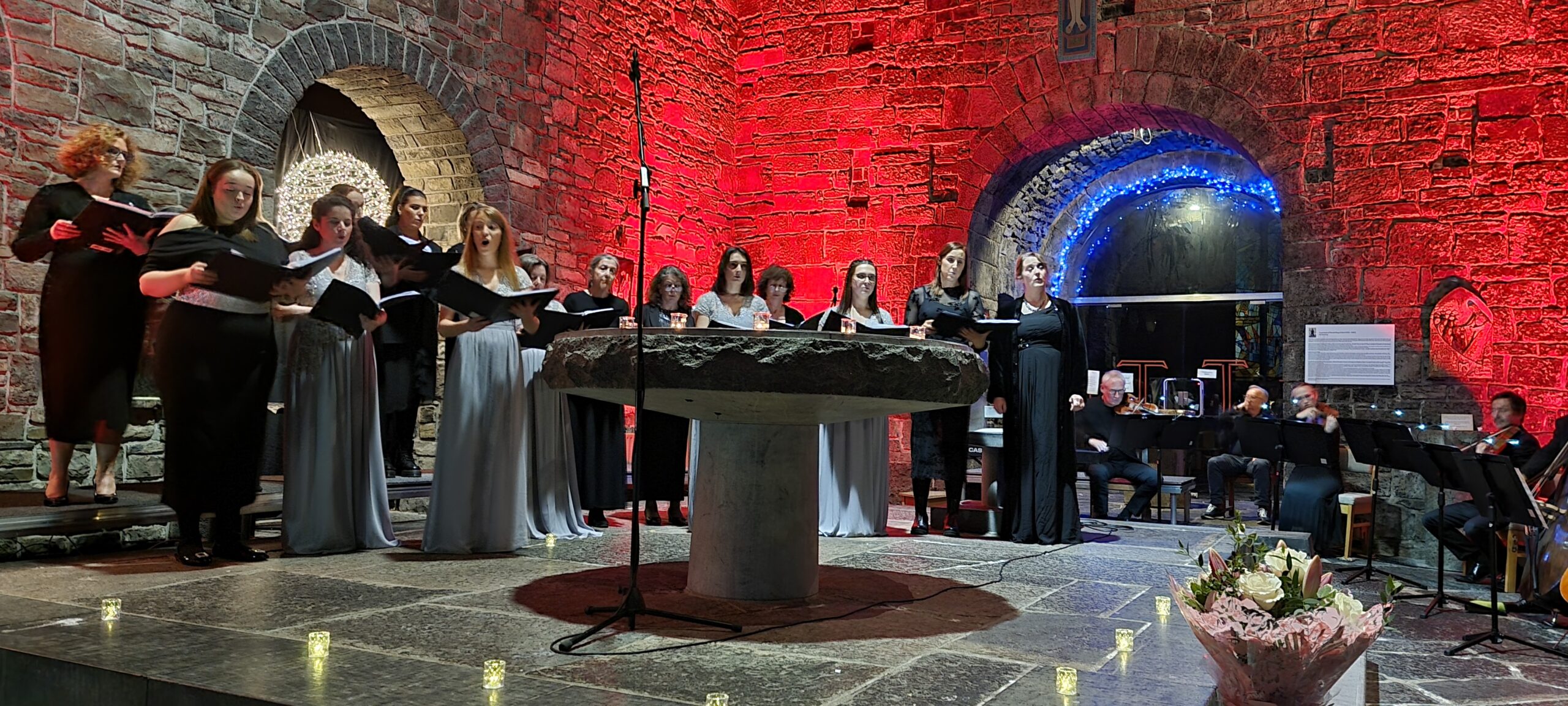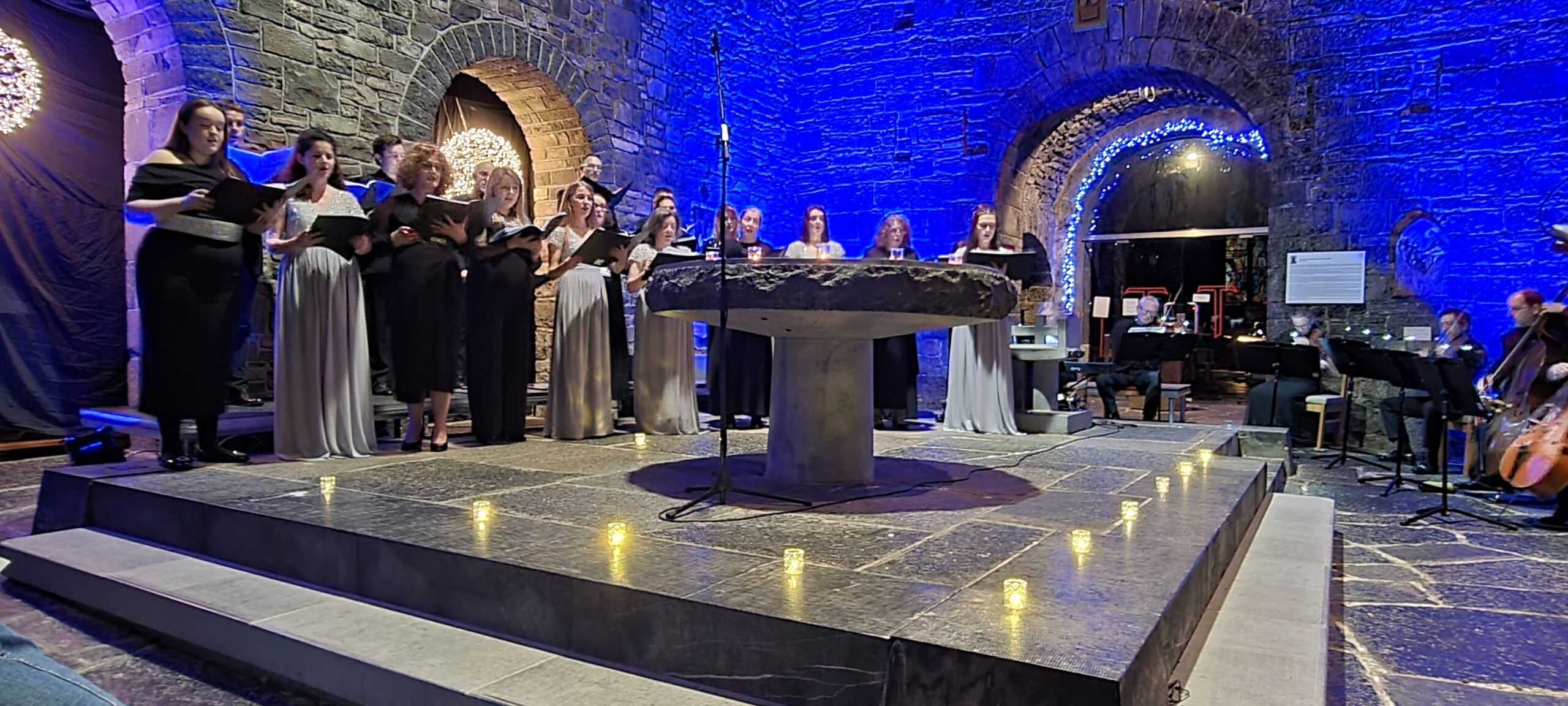Welcome / Fáilte Romhat!
The Franciscan Abbey in Multyfarnham was founded in 1268 and continues to be an active centre of Franciscan mission in Ireland. The only Franciscan Abbey in Ireland still standing on the footprint of its original foundation, the Franciscan fraternity continues its commitment of service from this special place.
Headlines
No Results Found
The page you requested could not be found. Try refining your search, or use the navigation above to locate the post.
Latest Updates
No Results Found
The page you requested could not be found. Try refining your search, or use the navigation above to locate the post.
News
No Results Found
The page you requested could not be found. Try refining your search, or use the navigation above to locate the post.
From the desk of Fr Kieran OFM
Speaking the truth
In his reflection for this week of Christmas, Fr Kieran takes the reading from the Acts of the Apostles on the feast of St Stephen, December 26, as his theme. In Acts, we read the account of the martyrdom of St Stephen. And what terrible thing did he do that led to his death? He spoke the truth, the truth given to him by the Holy Spirit. But some didn’t want to hear the truth!
In Kieran’s reflection, he points out that there are so many times and places where the truth of the Gospel is either not being heard, or perhaps, heard but not followed. St Stephen paid for this with his life and while the stakes might not be as high, we must always have the courage to be open to the truth, when we hear it spoken, and to speak the truth.
“Mere” – “Just” – “Only” – watch your language!
“When I use a word,” Humpty Dumpty said, in rather a scornful tone, “it means just what I choose it to mean – neither more nor less.” “The question is,” said Alice, “whether you can make words mean so many different things.” These words, from “Through the Looking Glass” by Lewis Carroll, might seem an unusual way to introduce a reflection by Fr Kieran. However, read on!
When we read the Gospels, it can be easy to look past some of the smaller words, those that seem less important and almost throwaway. However, in his exploration of the Gospel of Tuesday (Lk 10:21-24), Kieran asks us to stop and look more closely, this time at the expression concerning, “mere” children. How could so innocuous a word carry such a deep meaning and a deep message?
As Kieran shows us, words can indeed, as in Alice’s observation, “mean so many different things” and Kieran’s analysis of the words of Tuesday’s Gospel shows us how the words of St Matthew’s Gospel (Mt 4:4) should be taken very much to heart – “It is written: ‘Man shall not live on bread alone, but on every word that comes from the mouth of God.”
Practising and preaching!
In his reflection on the Gospel reading for the thirty-first Sunday in Ordinary Time (Year A) (Mt 23:1-12), Fr Kieran focuses on verse three of that Gospel: “You must therefore do what they tell you and listen to what they say, but do not be guided by what they do: since they do not practise what they preach.”
The advice, to “practise what you preach” is one that is commonly and frequently given and heard. In his reflection, Kieran considers another sense, the positive sense, in which the word “practise” is used in everyday language and points to the musicians, artists, actors, and sportspeople who daily “practise” what they do, so as to improve.
Therefore to “practise” in this context, is to seek to remove the imperfections, to accept that one has work to do in order to get better.
Good advice for all of us!
An Evening of Beautiful Music in the Friary
Some buildings lend themselves, naturally, to having good acoustics and the Friary church can count itself among those. And when music is played and sung here, the tones of the voices and of the played music combine with the very stones themselves to deliver a sound that cannot be replicated in any other place. In every sense, it is a unique experience, both for the artists and for their audience.

And so it was last Sunday evening when The Lynn Singers from Mullingar, the Irish Concert Orchestra Quintet, and Vocative, a small six-man group of singers visited us to perform their Winter Concert. An audience of just over 300 people were treated to a beautiful evening of perfect singing, and magnificent and uplifting music. The first half of the evening was given over to The Lynn Singers, Vocative and the ICO Quintet performing “Magnificat” from St Luke’s Gospel (LK 1:46-55). Few of us can say that we have not heard the amazing words of Mary’s prayerful response to the Angel sung. However, Sunday’s performance was one with which few would be familiar. In an arrangement by Kim André Arnesen, a young Norwegian classical composer from Trondheim in that country, the performance of “Magnificat” was quite simply, beautiful. How such a sound could be obtained from so few voices is a mystery and the individual performances were so perfect, that the soprano voices were like the voices of angels filling the Friary church. This arrangement was sung in Latin and while this might, at first, risk disconnecting the audience from the magnificence of the words, having the Latin and English, side-by-side on the back page of the accompanying programme, allowed us to engage with the prayer. A spectacular performance, with Musical Director, Dervilla Conlon skillfully encouraging every note and pause to deliver an impeccable performance.
This was followed by the ICO Quintet with a performance of three pieces, two by Arthur Duff (“Windy Gap” and, “Meath Pastoral”) before concluding with McAnanty’s Reel. Kenneth Rice led the quintet in a spirited uplifting, toe-tapping, rendition of this well-known reel and at times, it seemed that Robin Panter on Viola was going to step forward, put his viola down, and break into the reel itself. Joyful!

The evening concluded with three songs, again from the The Lynn Singers, with Vocative and the ICO. First, we had Moonset, by Don McDonald, a thoughtful piece, followed by Blackbird, a Lennon and McCartney icon to an arrangement by Kenneth Rice of the ICO Quintet, and the evening finished with a song that seldom fails to bring to mind old friends, the Parting Glass, again to a Kenneth Rice arrangement with Audrey Snyder.
Evenings such as this are as rare as they are special, and it will take a few weeks for the last echoes of music from the evening to fade away. It is evenings such as this that remind us of why the Friary church in Multyfarnham has a special place in the hearts of all of us.
T. Gerard Bennett
